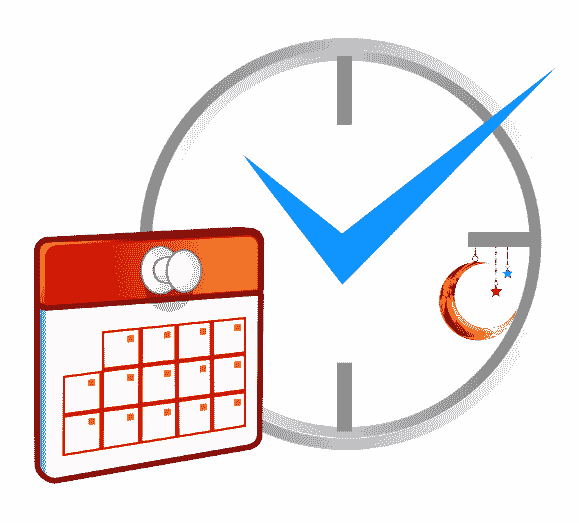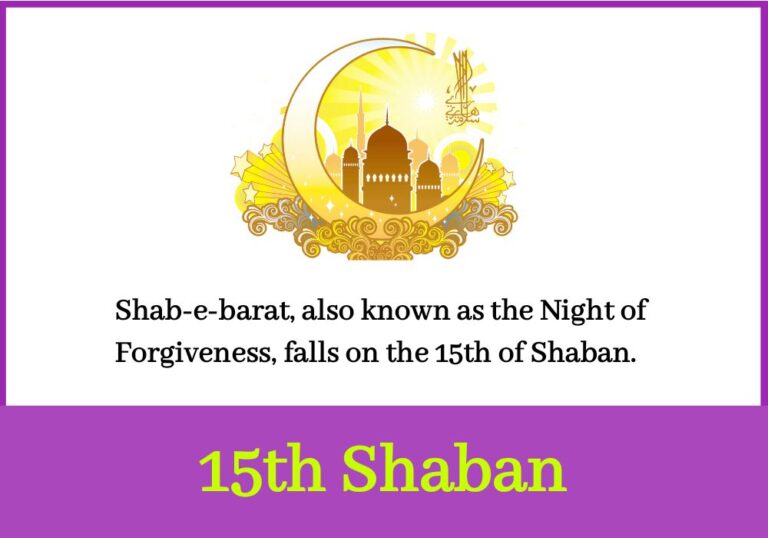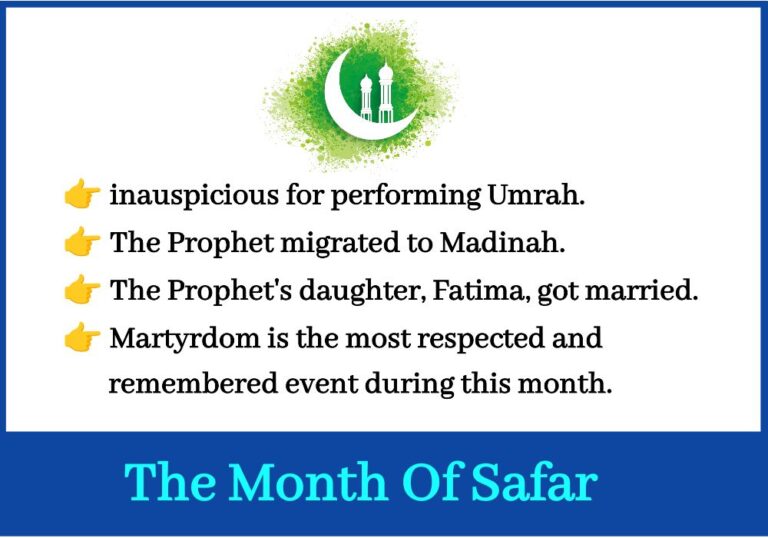Hazrat Prophet Muhammad (ﷺ) is deeply cherished by Muslims around the world, and his life continues to inspire millions.
Understanding his key milestones, such as his birth and death, through the Islamic calendar offers profound insights into his legacy.
The Islamic calendar is more than just a timekeeping system; it’s a vital part of commemorating important religious events and connecting with the Prophet’s remarkable journey.
By exploring these dates, American Muslims can gain a richer appreciation of his enduring influence and teachings.
What Day Is Prophet Muhammad’s Birthday
Every year, Muslims worldwide eagerly anticipate the celebration of the Prophet Muhammad’s birthday. However, there needs to be more clarity in determining the exact date of this significant event.
While Shias observe it on the 17th of Rabi Ul Awal, Sunnis commemorate it on the 12th of Rabi Ul Awal. This variation has led to discussions and different practices among Muslim communities.
The difference in dates can be traced back to historical reasons and interpretations of Islamic teachings. Sunni Muslims believe that Prophet Muhammad (ﷺ) was born on the 12th day of Rabi Ul Awal, whereas Shia Muslims adhere to traditions stating that he was born on the 17th day.
Both groups celebrate this occasion with great reverence by organizing processions, distributing food among needy people, reciting poetry praising Prophet Muhammad’s virtues and teachings, and engaging in acts of charity.
Was Prophet Muhammad Born On Monday
The date of Prophet Muhammad’s birth is debated among scholars. Some sources suggest that he was born on the 12th of Rabi’ al-Awwal, while others argue for the 17th.
According to Ilmuk, However, one widely agreed-upon aspect is that he was born on a Monday. This belief stems from several Hadiths (sayings and actions of the Prophet), which mention his birth occurring on a Monday.
When Was Prophet Muhammad Born Islamic Date
Prophet Muhammad was born on the 12th day of Rabiulawal in the Islamic calendar, corresponding to August 29th, 570 CE, in the Gregorian calendar.
Scholars widely accept this date as the birthdate of Prophet Muhammad based on historical accounts and records. The Islamic calendar follows a lunar system of twelve months, each being 29 or 30 days long.
When Was Prophet Muhammad Born Month
Prophet Muhammad, the founder of Islam, was indeed born on the 12th day of Rabiul-awal in the Islamic calendar.
However, it is essential to note that the Islamic calendar is lunar and does not align perfectly with the Gregorian calendar used in most parts of the world.
Therefore, converting this date to the corresponding Gregorian date can take time and effort.
Most historians and scholars believe that Prophet Muhammad was born in 570 CE. However, pinpointing his birthdate within that year can be challenging due to limited historical records and variations in different accounts.
While some sources suggest August 29th as his birthdate, others propose different dates within that month.
Regardless of the specific date, Muslims worldwide celebrate his birth during Rabiulawal with various traditions and gatherings known as Mawlid al-Nabi.
Mahmud Pasha, the famous Egyptian astronomer, suggested that Prophet Muhammad was born on Monday, the 9th of Rabi al-Awwal, corresponding to April 20th in 571 CE.
It is important to note that this is just one interpretation and may not be universally accepted among scholars.
Prophet Muhammad’s Death Date In Hijri
The death of Prophet Muhammad (peace be upon him) is a significant event in Islamic history. It is widely accepted that he passed away on Monday, in the month of Rabi Al-Awwal, in the 11th year of Hijrah.
Historical records show this corresponds to June 8th, 632 (11 AH). At the time of his passing, Prophet Muhammad was between 61 and 62 years old.
His death occurred in Medina, which was then part of the Hejaz region in Arabia.
The passing of Prophet Muhammad marked the end of an era and profoundly impacted the Muslim community.
His teachings and guidance continue to shape the lives of millions worldwide.
Muslims commemorate the day of his death as a time for reflection and remembrance, as well as an opportunity to renew their commitment to following his example.
Understanding this event’s historical context and significance helps deepen our appreciation for Prophet Muhammad’s legacy and enduring influence on Islamic faith and practice.
How Old Was Prophet Muhammad When He Died
Prophet Muhammad, the founder of Islam, passed away at 61 or 62 years old.
The birth of Prophet Muhammad, the founder of Islam, has always been debated among historians and scholars.
According to some historical accounts, he was born in 570 CE, while others argue that it might have been 571 CE. The contradictory birth dates have led to confusion and speculation over the years.
If we consider the birth year 570 CE, then Prophet Muhammad would have died at 62 on June 8th, 632 CE.
This date is widely accepted by many Islamic scholars and historians who believe that Prophet Muhammad’s birthday falls on this specific day.
However, those considering his birth year as 571 CE argue that he would have died at 61 instead.
His death marked the end of his prophethood and significantly impacted the Muslim community.
Prophet Muhammad’s life is considered a model for Muslims to follow, as he exemplified righteousness, compassion, and devotion to God.
Conclusion Points
The birth and death dates of Hazrat Muhammad (SAW) are significant in the Islamic calendar as they mark the beginning and end of a remarkable life that has had a profound impact on millions of Muslims worldwide.
While the exact date of his birth is uncertain, Muslims celebrate it on the twelfth day of Rabi’ al-Awwal. His death anniversary, known as Eid-e-Milad-un-Nabi, is observed with great reverence and devotion.
Key Points
- Prophet Muhammad was born on the 12th day of Rabiulawal in the Islamic calendar.
- There is a suggestion that he was born on Monday, the 17th of Rabi al-Awwal.
- Scholars debate about his birth year, either 570 CE or 571 CE.
- If born in 570 CE, he died at the age of 62 on June 8th, 632 CE.
- If born in 571 CE, he would have died at 61 instead.
These dates remind Muslims to reflect upon the teachings and example set by Prophet Muhammad (SAW) and strive to follow them in their daily lives.
By doing so, we can honor his legacy and contribute towards building a more peaceful and just society.
FAQs about Muhammad and Islam
Who was Muhammad, and what is his significance in Islam?
Answer: Muhammad, born around 570 CE in Mecca, is the founder of Islam.
He is considered a prophet and the final messenger of God in Islamic doctrine, tasked with confirming monotheistic teachings from previous prophets like Adam, Abraham, Moses, and Jesus.
His role as the Seal of the Prophets signifies the culmination of prophethood in Islam.
What is the core belief that Muhammad preached?
Muhammad preached the belief in the oneness of God and emphasized complete submission (Islam) to God as the right way of life (Dīn).
How did Muhammad receive his first revelation?
Answer: At the age of 40, around 610 CE, Muhammad received his first revelation from God.
According to Islamic tradition, the Angel Gabriel visited him in the cave of Hira, marking the beginning of his prophethood.
What challenges did Muhammad and his followers face in Mecca?
Answer: Initially, Muhammad’s followers were few and faced hostility from the polytheists of Mecca for 13 years due to their monotheistic beliefs and practices.
Why did Muhammad and his followers migrate from Mecca to Medina in 622?
Answer: To escape persecution, Muhammad sent some followers to Abyssinia in 615 CE.The migration of Muhammad and his followers to the city of Medina (formerly known as Yathrib) in the year 622 is known as the Hijra and is considered to be the beginning of the Islamic calendar.
What did Muhammad achieve in Medina?
Answer: In Medina, Muhammad united various tribes under the Constitution of Medina, establishing a peaceful coexistence. This period saw the growth of the Muslim community.
How did Muhammad’s life end?
Answer: In 632 CE, a few months after returning from the Farewell Pilgrimage, Muhammad fell ill and passed away. This event marked the end of his prophethood.
What is the significance of the Quran and Hadith in Islam?
Answer: The Quran, a collection of revelations received by Muhammad throughout his life, is considered the verbatim “Word of God” and forms the foundation of Islam.
Hadith and sira literature, which document Muhammad’s teachings and practices, are also essential sources of Islamic law.
Did Muhammad successfully spread Islam during his lifetime?
Answer: The fact that the majority of the Arabian Peninsula had already converted to Islam by the time Muhammad passed away is a tribute to the influence that his teachings and leadership had.
How is Muhammad’s legacy observed in Islam today?
Answer: Muhammad’s legacy is observed through the study of his life, adherence to his teachings, and emulation of his character.
Muslims also celebrate significant events in his life, such as his birthday, as a form of reverence and devotion.
When and where was Muhammad born?
Answer: Muhammad was born around the year 570 CE in the city of Mecca.
What is the meaning of Muhammad’s name?
Answer: The name Muhammad means “praiseworthy” in Arabic, and it appears four times in the Quran.
Who raised Muhammad in his early years, and what happened to his parents?
Answer: Muhammad was raised by his grandfather, Abd al-Muttalib, and later by his uncle, Abu Talib.
His father, Abdullah, died before his birth, and his mother, Amina, passed away when he was six.
Did Muhammad experience any significant events in his early life?
Answer: Yes, at the age of six, Muhammad became an orphan after losing his mother. He spent his early years in the care of his extended family.
What was Muhammad’s profession as a young adult?
Answer: Muhammad worked as a merchant and engaged in trade between the Indian Ocean and the Mediterranean Sea.
How did Muhammad’s marriage to Khadijah come about?
Answer: Khadijah, a successful businesswoman, proposed marriage to Muhammad in 595 CE. Their marriage is considered to have been a happy one.
What role did Muhammad play in the reconstruction of the Kaaba in Mecca?
Answer: In 605 CE, when the Quraysh decided to roof the Kaaba, Muhammad played a key role in reattaching the Black Stone to its position within the sacred structure.
When and where did Muhammad receive his first revelation, and who was it from?
Answer: Muhammad received his first revelation in the year 610 CE while in the cave of Hira on Mount Jabal al-Nour, near Mecca. The revelation was from the Angel Gabriel.
How did Muhammad initially react to the first revelation?
Answer: Muhammad was initially terrified by the experience but was reassured by his wife Khadijah and her cousin Waraqa ibn Nawfal. They affirmed that it was an angelic visitation.
Did Muhammad’s early experiences lead to skepticism from his contemporaries?
Answer: Yes, some of Muhammad’s contemporaries speculated that supernatural forces like jinn, soothsayers, or magicians might have influenced him.
However, these events also served as evidence of the divine origin of his revelations to his followers.





